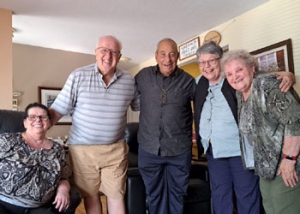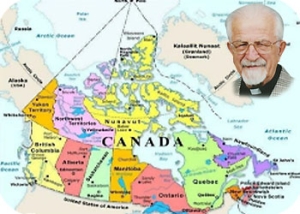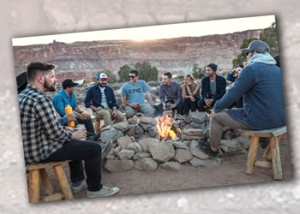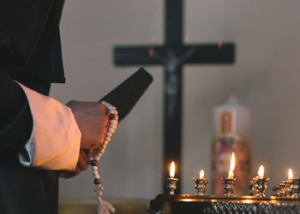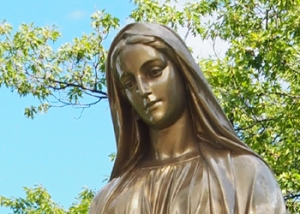Louise Fleury
Volunteers of God and French and English-speaking friends!
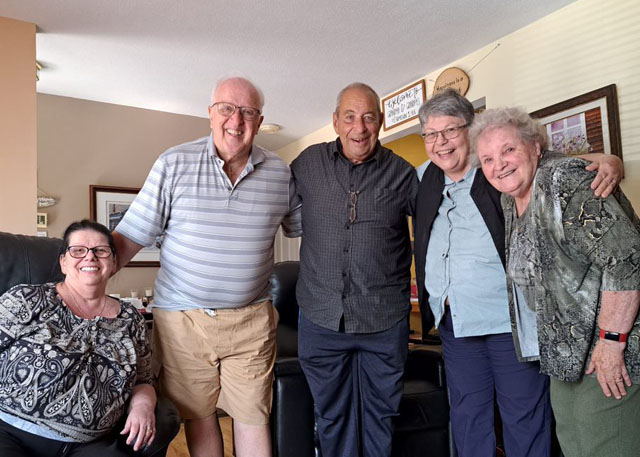 What a great meeting with Violaine Couture, coordinator with the Volunteers of God and French and English-speaking friends!
What a great meeting with Violaine Couture, coordinator with the Volunteers of God and French and English-speaking friends!
Fifteen Volunteers from Ottawa, Gatineau, Cornwall and a Voluntas Dei, Father Laurier Albert, met on Saturday, September 2, 2023 at the Chartwell Jardin Notre-Dame in Gatineau.
Violaine began with beautiful songs: "If you want to serve in joy" and "Here I am".
There was a division in small groups, on the reading of St. Paul to the Colossians, chapter 3, verses 1 to 24. It was necessary to find, in the manner of Father Louis-Marie Parent, a sentence that highlighted one of his five attitudes of life. We discovered that almost all of the verses touched on one or the other of the five attitudes.
Violaine also shared with us about why or how "I am interested in God" (word of Father Parent).
We had another share on: "How I live bad news": Volunteers being sick.
After the break, Mado Hébert paid tribute to Marie Laurin by giving a short speech on occasion. Marie was in charge of the Volunteers of God in Ottawa.Then, Violaine said a prayer of blessing for our sick.
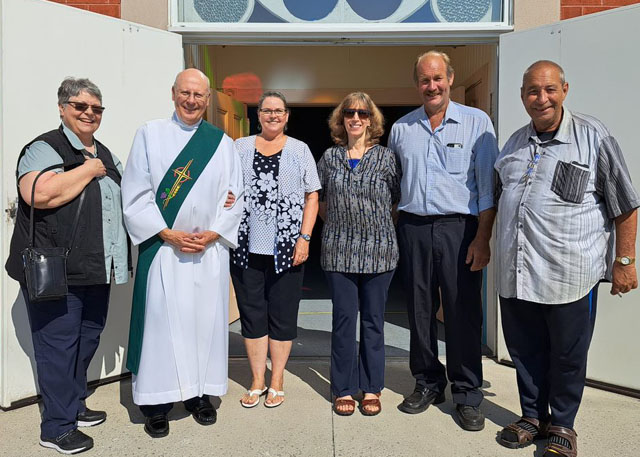 We also prayed that the Ottawa team would find ways to continue to socialize. We suggested some ways such as meeting in small groups sharing the task according to our talents. You could also participate in a zoom meeting either by phone or computer. We wishes Bonnie success...... who wants to start a group of Volunteers with an English-speaking Oblate, at Our Lady of the Announciation parish.
We also prayed that the Ottawa team would find ways to continue to socialize. We suggested some ways such as meeting in small groups sharing the task according to our talents. You could also participate in a zoom meeting either by phone or computer. We wishes Bonnie success...... who wants to start a group of Volunteers with an English-speaking Oblate, at Our Lady of the Announciation parish.
Thank you to Violaine who wanted to unite us in solidarity and thank you to Father Laurier for his blessing.
Lorraine Lacroix-Gauthier, Cornwall
Saturday, 2 september, 2023
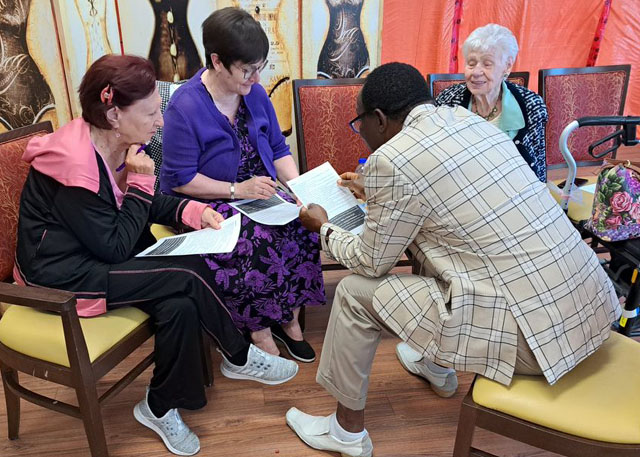
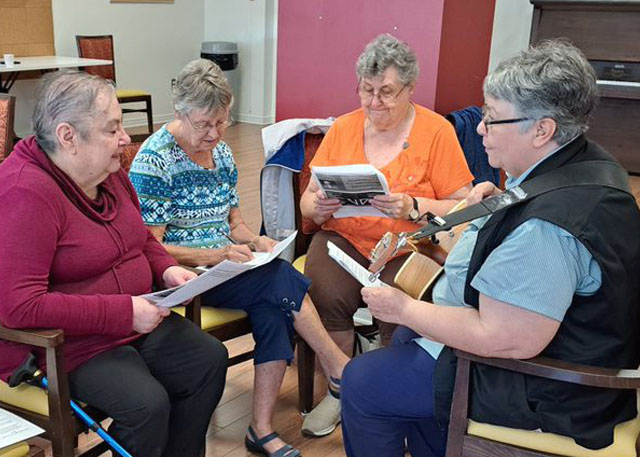
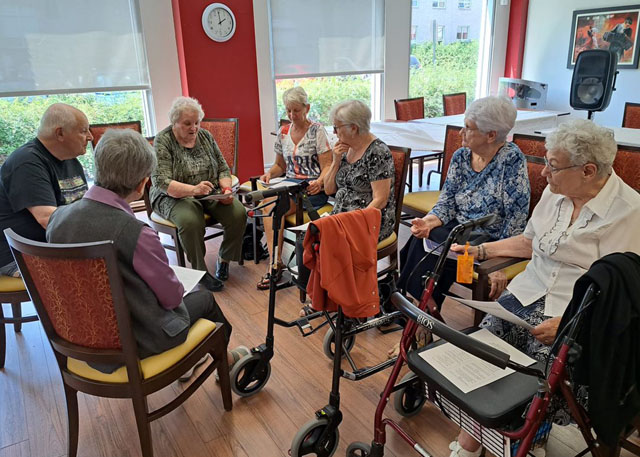
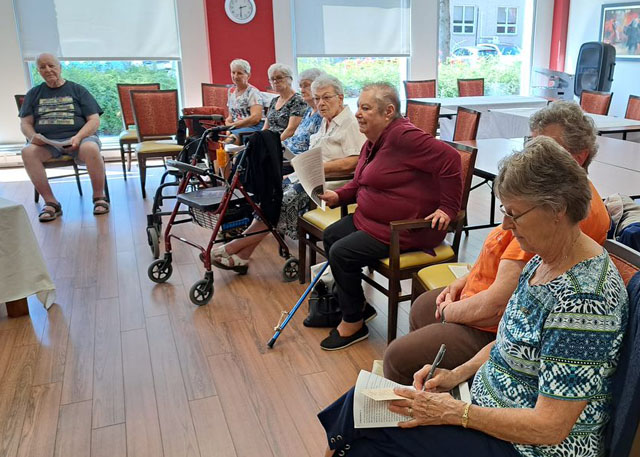
Pictures: Volunteers of God and friends of the Volunteers, Ottawa, Gatineau,Cornwall, St-Albert and Maniwaki: Gilles and Claudette Laframboise, Olier Couture, Mado Hébert. Deacon Marcel Givogue and his wife Gisèle, Marie Marleau et Denis Proulx, Violaine Couture, the Abbot Laurier Albert IVDei, "participant in the small team meeting".
THE FONDATIONS Ch. 2 - Father Louis-Marie Parent, O.M.I.
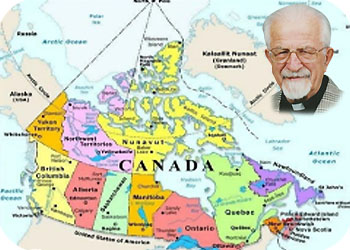 CHAPTER 2 -
CHAPTER 2 -
The fondations
|
Signs of the times.
The Missionary Recluses.
The Voluntas Dei. |
|
| THE MISSIONARY COLONIZER At the beginning of this appointment, another event occurred which seemed trivial but it was to have a powerful impact on Father Parent’s missionary activity. In November, 1945, one of his Oblate superiors, Father Henri Routhier, made a remark, which could have been offensive, regarding the new contemplative community. He stated that the Recluses were not the type of community needed in the vast, wild and forsaken regions of Western Canada. Then, he proceeded to describe the ideal community that would be suitable. Unwittingly, his proposal was close to the actual definition of secular institutes where consecrated persons would live in the midst of world and dedicate their lives to evangelization, transforming their milieu like leaven in the dough by being Christian witnesses.
THE RECRUITER During this same period, the Magisterium of the Church addressed the same concerns in the encyclical Provida Mater Ecclesia. Deeply inspired, Father Parent found direction in that document for his project of a secular institute for women. The foundation of the new Oblate institute was launched by a providential event. The hospital in Grand Falls, New Brunswick, in state of disrepair, was on the verge of being closed down by the provincial government. His Excellency, Roméo Gagnon, the Bishop of Edmundston, and the priests of the region wanted it to remain open because it was the only French-speaking hospital within a seventy kilometre radius. They had asked different religious communities to take it over but all had refused. Luce Lacombe, who was in touch with Father Parent, learned that Bishop Gagnon was looking for nurses to run the hospital and she informed Father Parent who accepted the project. Following a meeting between Father Parent and Bishop Gagnon, the Bishop accepted the Institute of the Oblates in his diocese by writing a quick informal agreement. Later, a formal request for approval was presented describing the future institute, its works and its purpose. “In a prophetic act of faith, Bishop Gagnon took the risk of granting the institute the status of Pious Union. Through these two documents the existence of the Secular Institute of The Oblate Missionaries of the Immaculate was made official on May 8, 1952, and the agreement ratified that same day. And so began the Institute with 22 young women from four different Canadian provinces gathered in Edmundston. On July 2, 1952, Luce Lacombe pronounced the first “YES” in the Institute as its foundress, accompanied by Isabelle Delisle, designated co-foundress. This was the fourth foundation attempt. Father Parent said, “In the eyes of my fellow Oblates… God had given me particular gifts: that of not getting discouraged, of keeping my bearings and believing in the present moment.” The Institute was finally born and was full of promise. Father Parent proposed to the Oblates what he called the spirituality of the three ‘fives’. Where did this idea come from? Here is how he explains its genesis:
He had also noticed that many people complain about their work or living conditions. Their self-centredness made them gripe about their lot in life. The effect was to wear down the most courageous among them. The antidote, he thought, was to encourage these people to give of themselves without expecting a return and to develop a spirit of service towards their neighbour who is a member of the body of Christ. This practice produces a sense of wonder and service without complaint. The fruit of these gospel-inspired attitudes is peace in the milieu. This is how the simple and practical spirituality of the “5‑5‑5” was born: five moments of prayer, five attitudes of life and five acts of charity. Its richness and its value are immediately obvious:
This spirituality is lived by The Oblate Missionaries of Mary Immaculate and the members of its associate group, the Volunteers of God, by the Voluntas Dei and their members in the broad sense and by several other groups who have adopted the“5 points” as their spirituality without being attached to either the Oblates or to the Voluntas Dei. What followed was a flurry of requests for Oblates from all directions. Father Parent describes the growth of this foundation with his usual enthusiasm: For the two years following the foundation, there was a young woman of less than thirty years of age joining every three days. On one occasion, we opened fifteen houses in a single week. In 1953 the Oblates set foot at Cap-de-la-Madeleine, Quebec. The street address of the first house situated close to the Shrine of Our Lady of the Cape was 555 Notre Dame Street. This was considered as a nod from the Virgin Mary who was welcoming her daughters to her shrine. That same year, the Institute was implanted in the United States and, the next year, the first missionaries left for Chile. There followed foundations in many Canadian provinces and territories and on four continents. In a few years, the Institute had spread to twenty-five countries Father Parent taught the Oblates not to dwell on their weaknesses but to develop their talents. He was daring and, consequently, nothing could stop him in endeavours for the glory of God, the good of souls and the sanctification of the Oblates. He had boundless confidence in each one’s potential and this gave her the opportunity to surpass herself and to develop her talents. This was a positive experience for most of the Oblates. However a few pushed themselves beyond their physical and psychological strengths and consequently lost their vocation. What can be said of his boundless charity that resulted in him offering refuge to girls, some who were teenagers, some in a fragile state of health and others who were under‑privileged. They were given a place in the Oblate houses and shared the Oblate lifestyle. Father Parent’s goal was to help them finish their studies so that they could get to know themselves and be better equipped to cope with life. The only requirement to be welcomed in was to love God. Reine-Aimée Welsh, the second directress general, liked to quote Canon Moreau, who had the reputation of being a saint. “Mademoiselle Welsh,” he said, “do not forget that the success of the Institute is founded on the charity of Father Parent.” That observation justly confirms the spirit that animated Father Parent.
Among the relatives of the Oblates, their friends and the friends of Father Parent, were many who were attracted to the spirituality of the five attitudes of life and wanted to live them, without, however, consecrating their lives to God. So Father Parent founded the “auxiliaries” of the Institute. This group, open to both men and women, later became known as an associate group named the Volunteers of God. The presence of Oblates in mission countries gave rise to needs and attractions for a greater secular presence in these milieus. In response, Father Parent invited young women to go and work with the Oblates as lay missionaries. After receiving special training, these women would give a few years of theirlives in mission countries while living with the Oblates, participating in their works and sharing the spirituality of the five attitudes of life and their pursuit of charity. In 1957, the “School of Smiles” was set up specifically for the training of these lay missionaries. This service, which lasted more than twenty years, provided the assistance of lay missionaries to a number of countries. He also invited a few young women sympathisers to live with the Oblates for a year or two, even though they had no intention of becoming Oblates. It was an invitation “to come and see” without further obligation. ATTENTIVE TO THE SPIRIT “A constant availability to the will of the Father« was lived assiduously from the time of the foundation of the Institute in 1952. It was at the heart of the charism of the founder. THE VOLUNTAS DEI Itinerants of the Will of God July 2, 1958, they were twelve men, the twelve apostles! Only one, Maurice Roy, had been part of the first group of men back in 1954. They could now start afresh and create a new association that would meet the criteria determined by Father Parent a few years earlier. Father Parent said to himself, The Voluntas Dei Institute is surely desired by God. In July 2008, the Voluntas Dei Institute celebrated its 50th anniversary of foundation. TO BE CONTINUED... |
Universal face of the institute (1)
Since its foundation in 1952, the Institute has attracted many young women. As early as 1954, there were so many vocations that the Institute expanded into the mission field internationally.. Today, there are more nearly 400 members in approximately twenty countries in America, Europe, and Asia.
The mission commits the Oblate to be a responsible Christian presence in the world, to exercise a transforming action within temporal realities in order to make them more just and more humane.
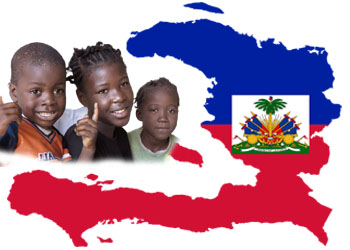 With Marie-Cécile, how are you a peacemaker in Haiti?
With Marie-Cécile, how are you a peacemaker in Haiti?
Blessed are the peacemakers, for they shall be called sons of God (Matthew 5:9).
We live in a world where peace is slipping away, and being a peacemaker is a constant challenge.
These words of Saint Matthew are a stimulus to help us taste the fruit of the Spirit, which is peace. Through our spirituality, we Oblates are invited to bare ourselves further in order to be “peacemakers.”
In Haiti, sowing peace is more than a challenge, but out of love and thanks to our consecration at the heart of the world, we are striving to enter into this practice, which is becoming a real leaven to make our secular dough rise.
From my own experience, I urge you to live as peacemakers by monitoring our attitudes, looking first and foremost for the positive in everyone and everything around us.
PEACE is the reality that we must all seek to live.
Marie Cécile Printemps
In the presence of Marie-Thérèse, how are you a peacemaker in Canada?
Having a new TV server at the Residence, I programmed the Assumption Novena for the residents who were unable to do so themselves. After this thoughtfulness, they were happy to be able to follow the Novena, and I was happy to have brought them more peace. (MTG)
Marie-Thérèse Gagné
 And you Claudette, how are you a peacemaker in the United States?
And you Claudette, how are you a peacemaker in the United States?
In this society, there are a lot of arguments on various issues such as politics, illegal immigration impacting society today. People are angry and upset. I try very hard to present an opinion without holding on to it. It is not important to have the last word but rather to allow others to believe what they present, as long as I bring forth a charitable spirit.
Claudette Cyr
Read:
Universal face of the institute (2)
Universal face of the institute (3)
My Involvement
For me the INSTITUTE was a place of vitality and growth. Despite my insecurities, it called on me on several occasions to take on responsibilities and provide services that I never thought I could.
 In addition to my career as a teacher and pastoral leader in schools, I was able to take on responsibilities and provide services in various areas of the Church in Quebec. All of this was related to faith education.
In addition to my career as a teacher and pastoral leader in schools, I was able to take on responsibilities and provide services in various areas of the Church in Quebec. All of this was related to faith education.
In so doing, these experiences helped me to recognize the “gifts” that the Lord had entrusted to me to serve others, the Institute and His Church. Some of my companions often remarked that I had been spoiled by God, whereas it seemed to me that He was asking a great deal of me, sometimes even too much.
I give thanks to God for all he has enabled me to experience, especially through my Oblate vocation! I also thank the Institute for its fidelity to its identity and charism over the years and in all the environments where Oblates have been or still are present.
It was an experience of communion with the missionary life of the Institute and of the Church.
Colette Massé
Thought of Father Louis-Marie Parent, O.M.I. / Reflection 1
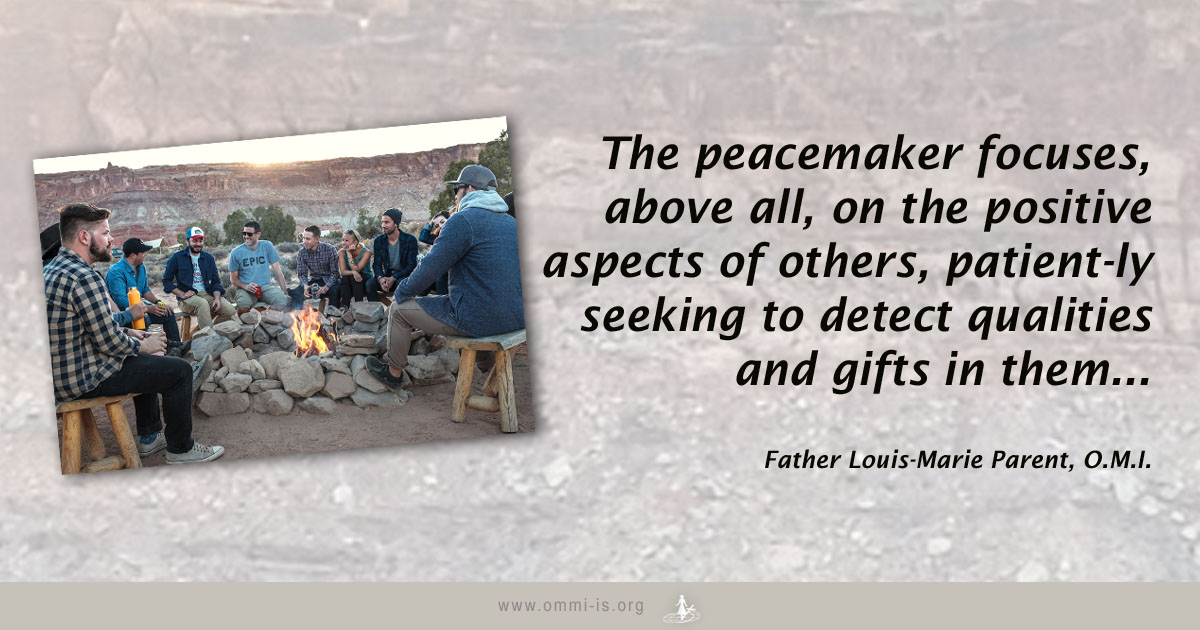
|
The peacemaker focuses, above all, on the positive aspects of others, patiently seeking to detect qualities and gifts in them... Father Louis-Marie Parent, O.M.I. Reflections on the following thought: Lise Jacques |
Women who live consecration in the midst of the world
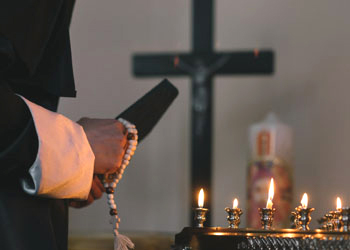 From my childhood I knew I was drawn to consecrated life. I said to my mom, "Someday I will found a community without the veil." I thought that the Blessed Virgin did not go to a convent. I received a propaganda leaflet on the Secular Institute of Oblate Missionaries of Mary Immaculate, women who live consecration in the midst of the world. The spirituality fascinated me. I had always wanted to go to the missions. What a joy it was when I was chosen! After several years in foreign countries, I came back and it is still the love of Christ and the service of neighbor that dwell within me.
From my childhood I knew I was drawn to consecrated life. I said to my mom, "Someday I will found a community without the veil." I thought that the Blessed Virgin did not go to a convent. I received a propaganda leaflet on the Secular Institute of Oblate Missionaries of Mary Immaculate, women who live consecration in the midst of the world. The spirituality fascinated me. I had always wanted to go to the missions. What a joy it was when I was chosen! After several years in foreign countries, I came back and it is still the love of Christ and the service of neighbor that dwell within me.
Thank you to the Institute for allowing me to fulfill my vocation and which continues to do so.
Rose Mathieu
The importance of Mary in the spirituality of the Institute
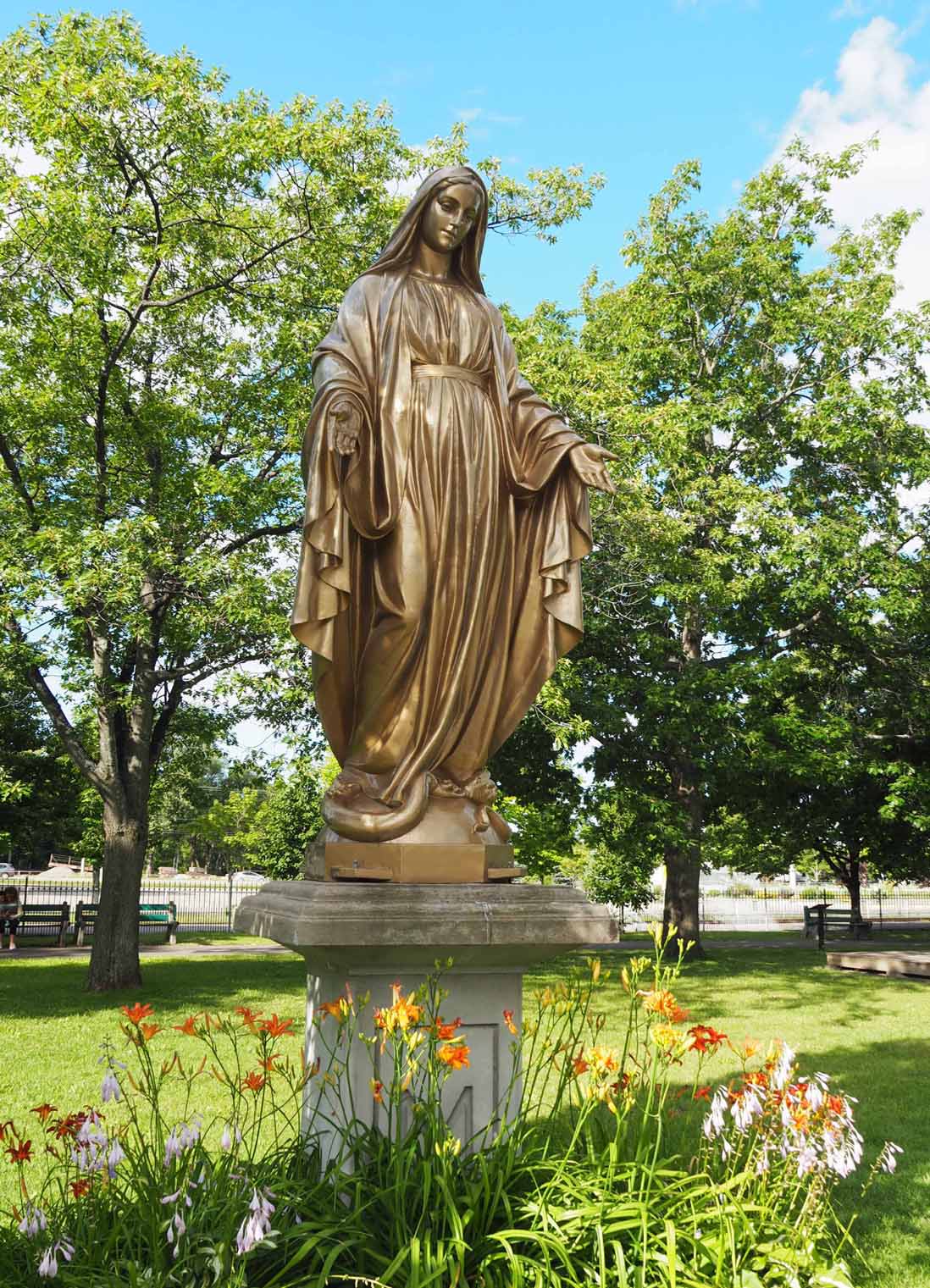 From the very beginning of the founding of the Secular Institute, The Oblate Missionaries of Mary Immaculate, Mary became a model for the Oblate, a source from which the Oblate could draw inspiration to live the Will of the Father and accomplish her mission in the heart of the world, in a spirit of service, charity and fraternity.
From the very beginning of the founding of the Secular Institute, The Oblate Missionaries of Mary Immaculate, Mary became a model for the Oblate, a source from which the Oblate could draw inspiration to live the Will of the Father and accomplish her mission in the heart of the world, in a spirit of service, charity and fraternity.
An Oblate is a consecrated lay person. Inspired by the example of Mary, she is dedicated to serving in the midst of the world, like a leaven in the dough.
Fully aware of the spiritual values received at baptism, she deeply desires to follow Jesus step by step in her evangelical growth.
After being visited by the Angel and accepting the Father's Will, Mary left in haste to be of service to Elizabeth. It is in this same spirit that the Oblate renders service, by being attentive to God's presence, cultivating a loving outlook on herself and others, welcoming events and working to build peace.
Just as Mary kept everything in her heart, the Oblate needs to find her strength in the Eucharist and in times of prayer when she listens to the Father's Will.
Through her consecration, the Oblate is an active contemplative who brings God to the heart of the world and intercedes with Mary to speak to God about the world in which she lives, in particular, through the recitation of the rosary.
In moments of psychological or physical suffering, the Oblate contemplates Mary who remained standing at the foot of the cross, keeping hope for better days.
Like Mary, she remembers the teaching of Jesus: each day has enough trouble of its own; tomorrow will take care of itself, aware that the grace of the present moment has been given to her.
The Constitutions (rule of life) are the hand of the Virgin Mary leading the conscientious Oblate into the intimacy of the home at Nazareth where secularity was lived to the fullest, totally focused on God and with and openness of heart to the contemporary world as it was.
Under the guidance of the Holy Spirit and in the presence of the Father, each Oblate has the duty of reproducing Christ in her life by striving to live the attitudes of Mary, her mother and her model.
Reference: Louis-Marie Parent, Founder.
Paulette Chénard
New edition Sparks of Life, august-november 2023
| In this edition of Sparks of Life, we shall continue this theme of peace, emphasizing, among other things, the role of listening in producing a dialogue that builds peace in our relationships. But isn't the road to peace strewn with both great difficulties and great satisfactions? As a novelty this time, we will also have the opinions of people who present themselves as "friends" of the Volunteers. These people are beginning to acquire knowledge of the spirituality of the Volunteers and, at the same time, they manifest a long experience in spiritual life. They are, therefore, able to share with us, too, the fruit of their reflections on peace based on their faith experiences. This opens new horizons for our magazine. In closing, for any questions, needs or information, I invite you to contact me at this new internet address: coord.eng.fr@ommi-is.org. If, however, you wish to join the secretariate of the Volunteers of God, you must do so by this email address: voluntairesdedieu@ommi-is.org Violaine Couture, Oblate from Canada Coordinator for English-speaking and French-speaking sectors |
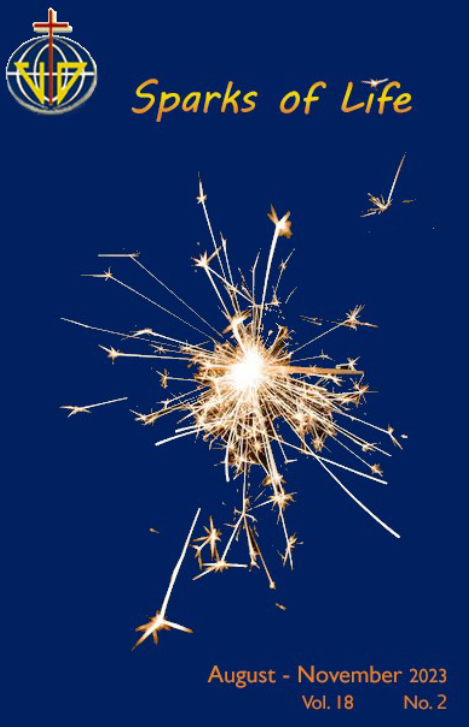
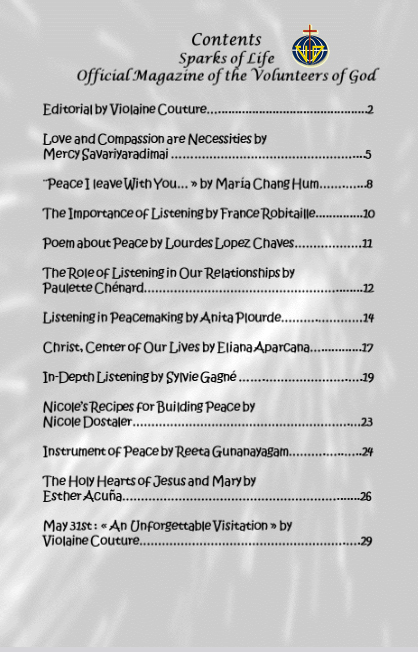
Serving Like the Volunteers of God
 The word SERVE can sometimes be frightening when it evokes a relationship of inferiority towards others. For me, “Being of service” means helping someone by being helpful and available. To be open to the needs of others is to give, to offer, to present and to be more “voluntary” in the hand of others.
The word SERVE can sometimes be frightening when it evokes a relationship of inferiority towards others. For me, “Being of service” means helping someone by being helpful and available. To be open to the needs of others is to give, to offer, to present and to be more “voluntary” in the hand of others.
Jesus, by making himself a servant, invites me to follow in his footsteps and to remain in a state of service.
Being of service doesn't just mean doing favors when it suits me; on the contrary, it means being attentive, respectful and more attuned to the needs of others.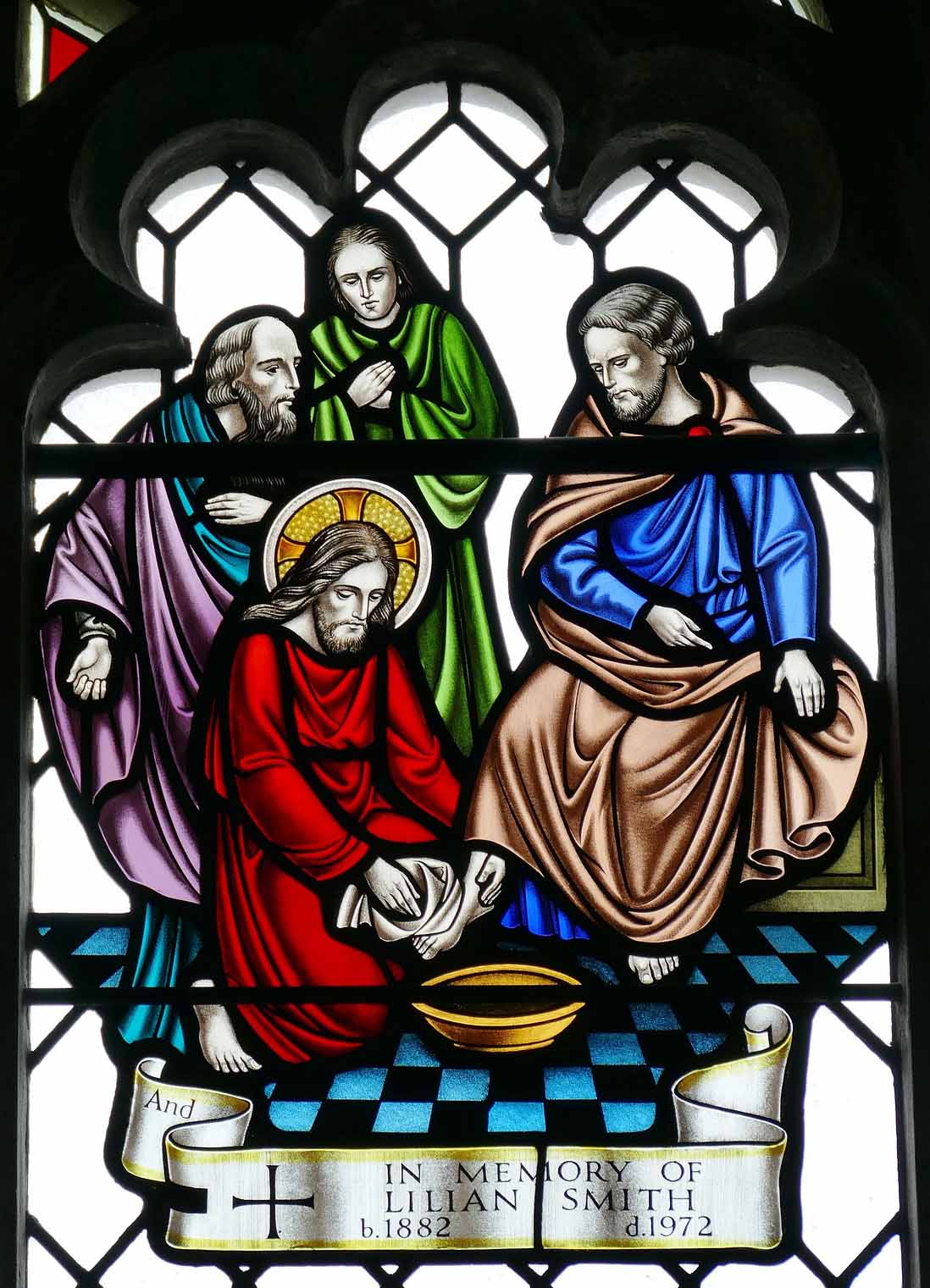 It's impossible to define yourself as a person of service by ignoring others.
It's impossible to define yourself as a person of service by ignoring others.
Let's remember that every time I serve someone, I am serving God. All service must be free, without obligation.
Service is beneficial to the normal development of one's personality, one's character, one's whole being. Agreeing to serve, officially recognizing oneself as a person of service, is a sign of physical, moral and spiritual health.
Let's open our eyes because there is no shortage of opportunities to serve. To serve is to live like Jesus. When I'm with someone, I try to give 100% of myself, especially by being present and listening.
Life goes by quickly, so why not take a few minutes to call a friend, a family member or a neighbour. Unfortunately, all too often we miss this opportunity.
Finally, let's not forget that small gestures are good services. I often repeat this phrase: “Lord, I pledge to serve you by serving my brothers and sisters.”
Amen.
Maribel Mendoza, Volunteer of God in Drummondville
Do you want to change your life? Conclusion, articles 1-2-3-4
 To devote five minutes a day to reflection, to set a goal in life, we need to follow the example of the obese person who submits to a certain discipline in order to lose weight.
To devote five minutes a day to reflection, to set a goal in life, we need to follow the example of the obese person who submits to a certain discipline in order to lose weight.
Is it possible for five minutes a day to change a human being's life? It's hard to believe. In our century of feverish agitation, we spread ourselves too thin, waste too much time improvising, and have no time to reflect. And yet, we still meet people who don’tseem to be in a rush; they seem to have time to give.
Five minutes isn't much, but it would be enough if you implemented it every day at around the same time. It's a discipline that will help clarify your daily objectives and avoid wasting time.
Courage grafted onto God's qualities liberates man, makes him self-reliant and develops in him a spirit of acceptance and sharing. Courage becomes an inner drive to seek the truth, to accept it unconditionally, to build peace and to deploy strength without aggression or violence. Let's call on courage and start changing today.
Personal reflections for growth
1. Do you think five minutes of reflection every day can change your life?
2. Can you name a few goals you've achieved in your life?
3. Have you ever had to take risks? Which ones?
4. What's an example of courage?
Excerpt from the "Collection Volontaires de Dieu": Do you want to change your life? Father Louis-Marie Parent, O.M.I.
Do you want to change your life? (1) Five minutes can change a life
Do you want to change your life? (2) Having a goal in life
Do you want to change your life? (3) – Move Forward
Do you want to change your life? (4) - Finding balance.

